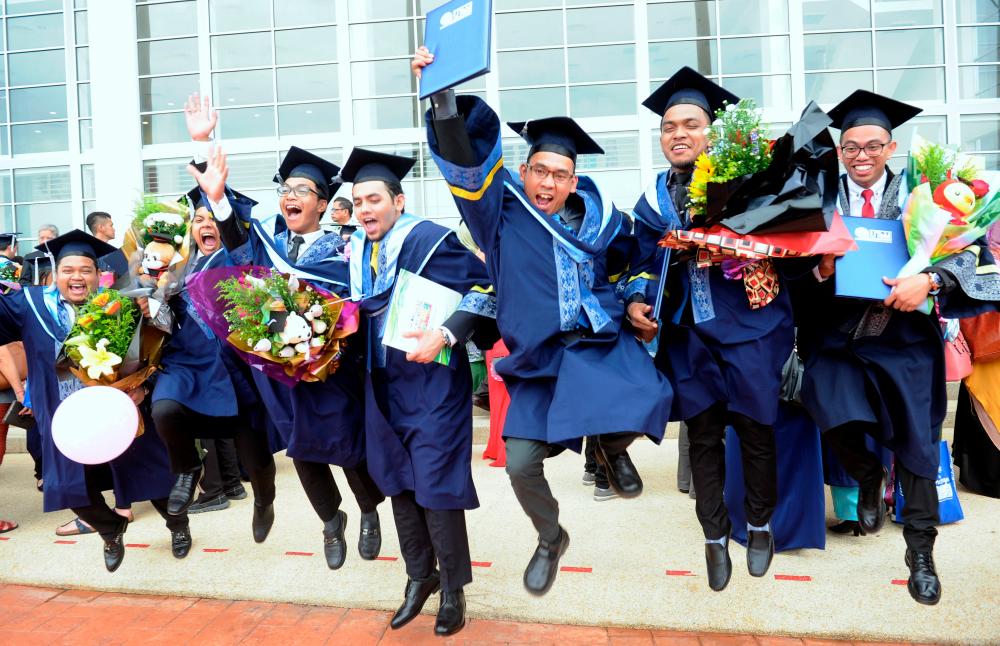PETALING JAYA: Persistent underemployment signals a disconnect between skills taught in universities and real industry requirements, said National Association of Private Educational Institutions secretary-general Dr Teh Choon Jin.
“This needs to be corrected immediately if the country is to move forward in terms of employment and economic growth.”
He said based on 2022 job placements data from MyFutureJob, a statement by the Social Security Organisation said 40% of graduates were underemployed.
The figure was refering specifically to semi-skilled and low-skilled jobs.
“Addressing the misalignment in employment and skills is crucial to maximise contributions of the educated workforce.
“This is to ensure that high-skilled job opportunities match the qualifications and aspirations of the growing number of graduates in Malaysia.”
He said the country’s current state of education has raised critical questions about the relevance of theories, the curriculum, and equipment used in tertiary institutions.
“The implications of this obsolescence extend beyond academic realms.
“It significantly affects the employability and job readiness of graduates entering the workforce.”
Teh said the mismatch also leads to graduates settling for positions that fail to align with their educational background, thus worsening the underemployment problem.
To address the skills gap, he emphasised the importance of combining theoretical studies with practical training.
Teh, who is also the senior director and registrar at a private university, said tertiary institutions usually make annual improvements and reviews to their course syllabus.
He stressed that it is also important to continuously adapt frameworks that align with the latest industry developments.
“In technology and engineering, where constant advancements are par for the course, the integration of modern tools and software becomes imperative.
“Collaboration between academia and industry is key to exposing students to the latest practices, as it ensures their skills remain relevant,” he said.
Teh called for a global approach to benchmark technology-related programmes and collaborate closely with industry partners for curriculum updates.
However, he said challenges persist in ensuring that the curriculum aligns with contemporary industry trends.
“There is a need for a flexible education system and lifelong learning to meet industry demands. The incorporation of Industry Revolution 4.0 into the curriculum across all fields is crucial to producing future-proof talent.
“Employers also complain that graduates are often not ready for employment and need reskilling and upskilling,” he said, adding that this reflects poorly on Malaysian universities.
Teh said a holistic approach is needed to bridge the gap between theoretical knowledge and practical skills, as this directly contributes to underemployment.
“Graduates perform poorly in soft skills such as communication, critical thinking and problem-solving. These are often cited by employers as areas where graduates fall short.
“It is also important to integrate courses related to digital technologies, artificial intelligence, and machine learning to meet the evolving demands of the job market.”
Teh said while some universities have integrated cutting-edge technologies into the learning process, there is a general lag in the higher education sector.
However, the Penjana Human Resource Development Corporation demonstrates a commitment to improving graduate employability, he added.
“There are ongoing initiatives to bridge the gap between academia and industry, including advisory panels, internships, co-op programmes, and apprenticeships.
“The continuous improvement process mandated by the Malaysian Qualifications Agency also ensures that feedback from students, alumni, and industry players influence curriculum updates.”
Teh said a mismatch in employment and skills leads to graduates settling for positions that fail to align with their educational background, thus worsening the underemployment problem. – BERNAMAPIX









